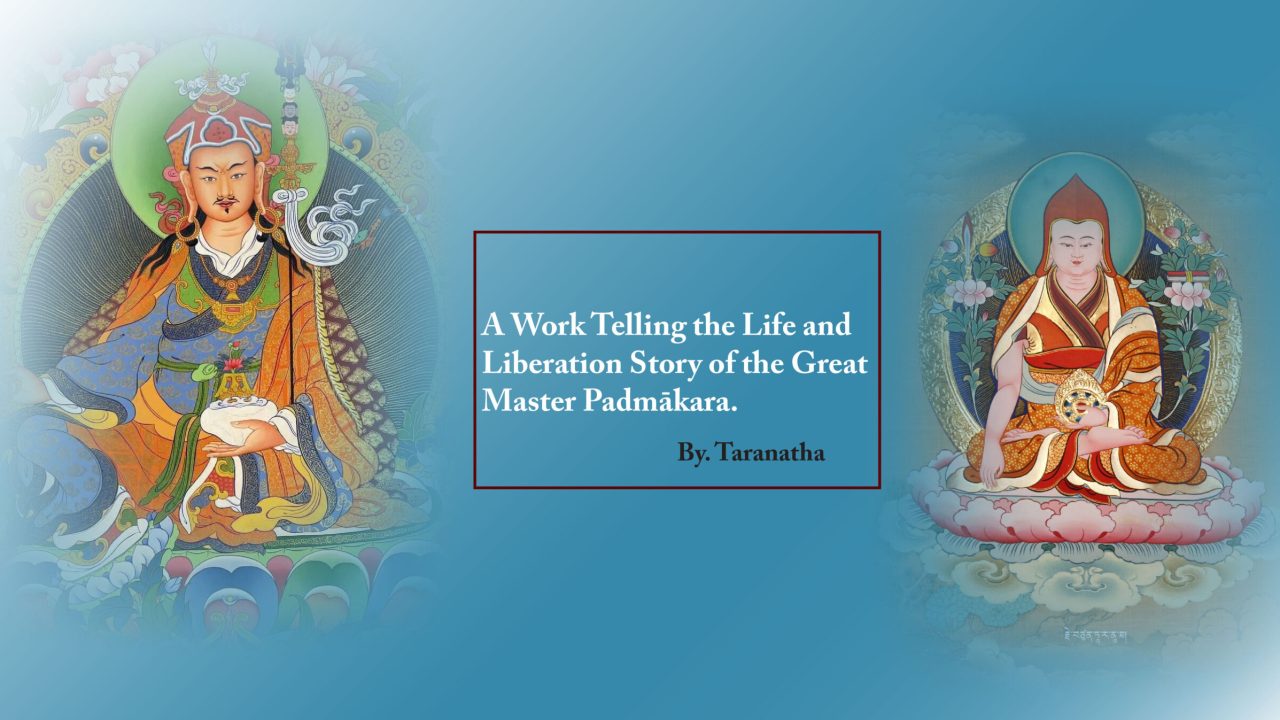Part 14
They said to the king, “You are our only Lord! This man of the borderlands is very powerful. King, your mind is fixated on the Dharma. This Indian is going to steal your kingdom!” They said many other malicious things, and for each thing the Master had said earlier they gave many poor reasons why it should not be done. They kept repeating the same demand, “You must offer great gifts to the Ācārya and tantric Master and ask them to return to India right away!”
The ministers then implored the Master directly. At that, the king was saddened and offered the Master a measure of gold dust, prostrated to him, circumambulated around him and explained his position. “Had I wanted gold, I would not have come,” the Master replied, “I came in order to tame the vicious demons of this primitive land of Tibet, to spread the Dharma, and, having transformed the country into an excellent land, to bring happiness to its people. If I want gold, it is enough simply to do this!” and merely by touching the rocks around him, he turned them into gold. Out of respect for the king, though, the Master accepted a handful of the gold, saying “I will make an offering of this at the Vajra Seat in Bodhgayā.” Having given the remainder back to the king, the Master said:
Your good heart guides you to misfortune,
Your vast compassion causes anger,
The king’s ministers set his course,
The ministers of Tibet are evil demons!
Sentient beings’ unwholesome actions,
Can undo even the power of buddhas.
The Master then agreed to what the ministers had requested.
The king’s principal meditation deities were the five deities of Avalokiteśvara. Later, the king accomplished Hayagrīva, their inner form. We are told that, as a sign of accomplishment, the image of Hayagrīva at the temple of Ārya Palo Ling emitted a horse’s neigh that could be heard across two-thirds of the world. That image of Hayagrīva in Ārya Palo Ling is the one described in the Māyājālatantra, The Net of Magical Illusion.
Before he left, the Master summarised the remainder of the pith instructions from A Garland of Views:
This is my teaching to you: The view must accord with the dharmakāya. The conduct must accord with the bodhisattvas. If your conduct is lost in the view it becomes nihilism, in which there is neither virtue nor wrongdoing, that later cannot be repaired. If the view is lost in conduct, being bound by the characteristics of things, there will be no liberation. In my Semdé teachings, the view is emphasised. In the future, there will be all sorts of people who, understanding the words but not having the confidence of experience, will come asserting that they are working for the benefit of beings.
